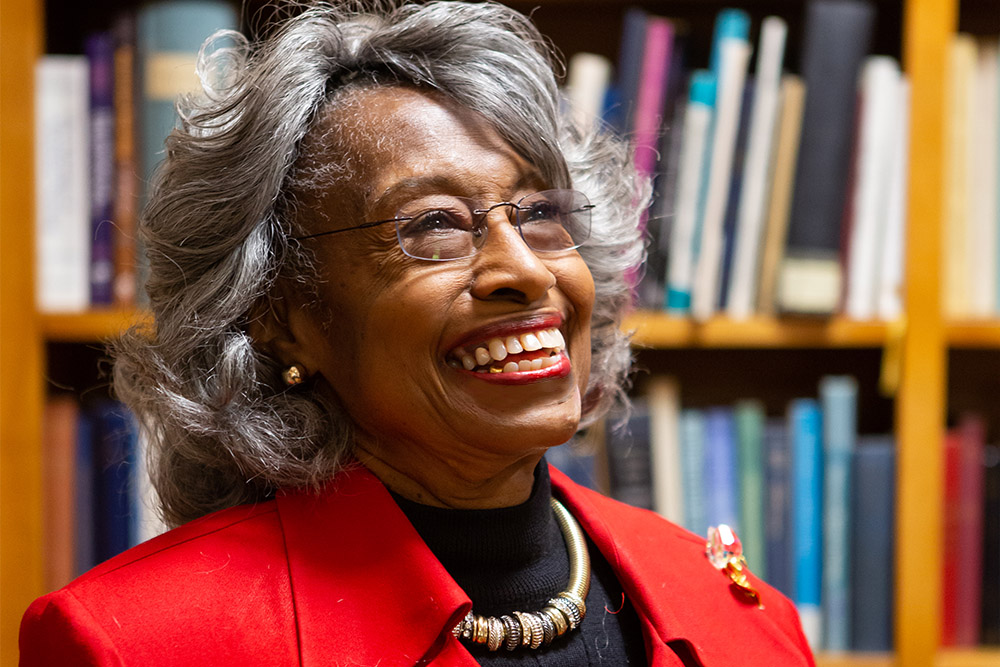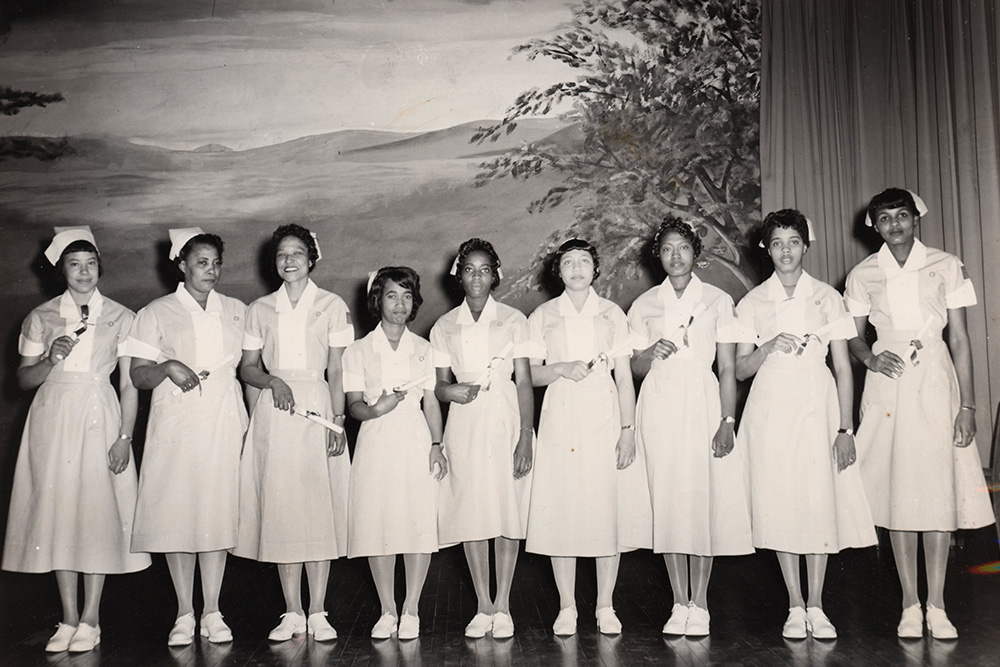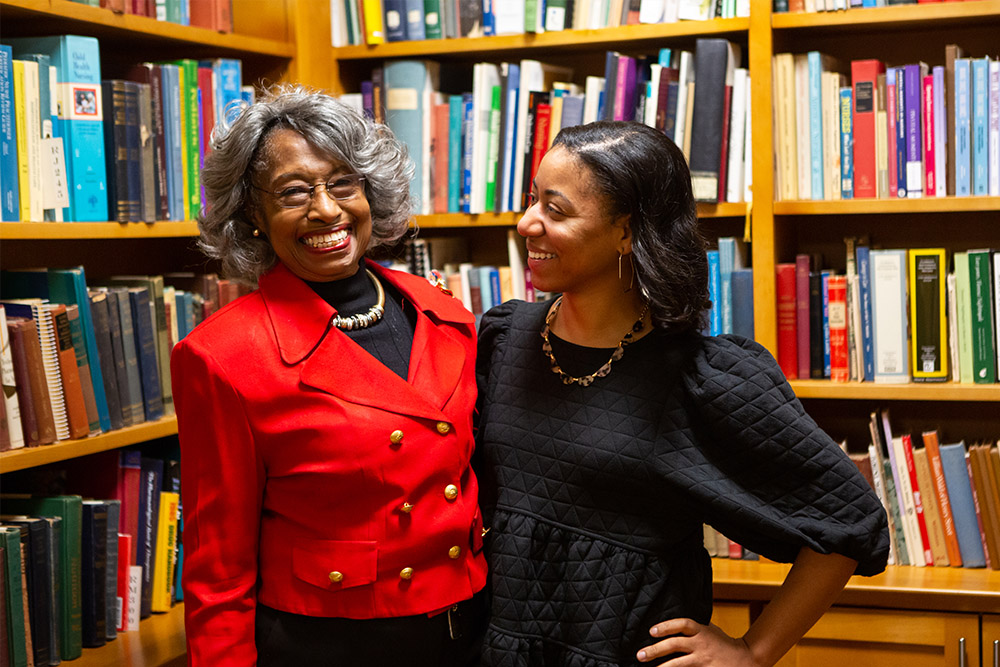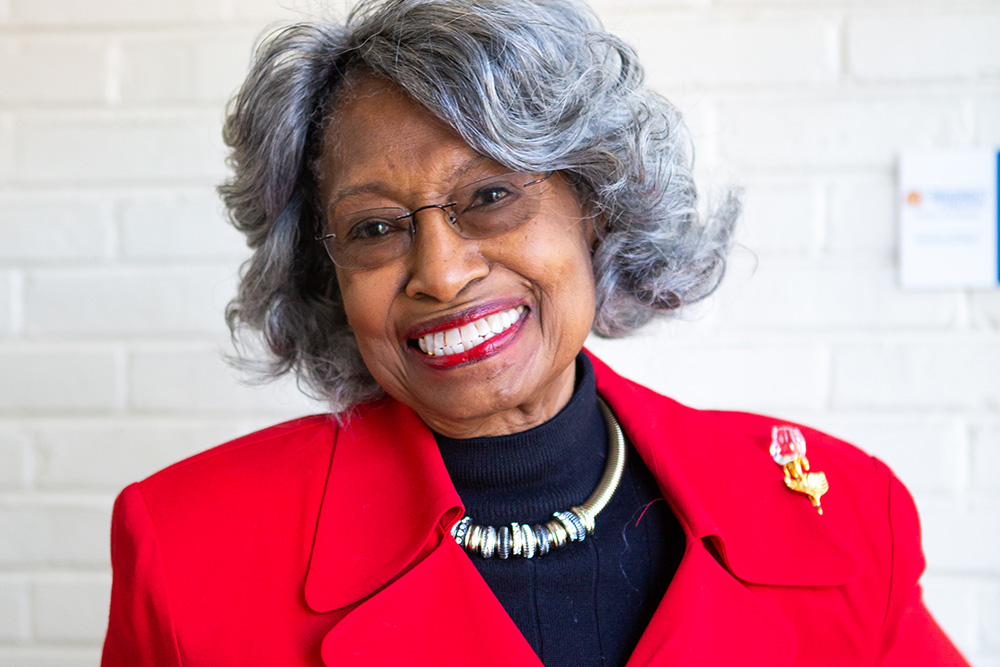Nurse Negotiator: Evelyn Rogers Gardner, LPN `61

From the start, the negotiations were constant.
Four neurologists, two hospital rooms, dozens of medical residents, a secretary pool, and hundreds of appointments. Patients who needed crutches, wheelchairs, pain relief, home visits, even hospital vouchers for lunch.
And Evelyn Rodgers Gardner (LPN `61)—firm but kind, creative but exact, petite but still larger than life—filled every gap.
During her routine half-hour lectures to new medical residents throughout the 1960s and 70s—whose eyes “bucked,” Gardner recalled, “as they looked at each other like, ‘She’s training me how to work in this clinic?’”—it became abundantly clear: Gardner was in charge. With a smile. And please: no cursing.
-
Creating UVA’s Department of Neurology from scratch as she did in 1967 required assessments of material needs (exam tables and medical instrumentation), the physical environment (wheelchair-accommodating doorways and bathrooms with support rails and emergency bells), and rules and expectations for behavior ($1 per swear in the jar).
During her routine half-hour lectures to new medical residents throughout the 1960s and 70s—whose eyes “bucked,” Gardner recalled, “as they looked at each other like, ‘She’s training me how to work in this clinic?’”—it became abundantly clear: Gardner was in charge. With a smile. And please: no cursing.
“If any of them give you any lip,” her colleague Dr. T.R. Johns told her, “tell them, ‘There’s the door.’”



After earning an LPN in 1961 from Jackson P. Burley High School’s nurse training program in 1961—developed during segregation when Black students were not allowed to attend UVA—and working with neurology patients for six years, the outpatient neurology clinic Gardner established with Johns was first located in Barringer Wing and, by the late 1960s had more than 7,000 patients on its rolls. From migraines to muscular dystrophy, cerebral palsy to epilepsy, it was a moment of both neurological and drug discovery, and Gardner and her colleagues had a front row seat to the rapidly expanding frontier of brain science.
- read "Shining Recognition on Nurses UVA Trained Decades Ago" (UVA Today)
- read "UVA grants full alumni status to black nurses who earned it decades ago" (Virginia magazine)
After developing the department, Gardner’s clinical and administrative duties continued to expand. She counseled patients with Multiple Sclerosis (“No hot baths,” she told them. “Remember to stop and rest. And invent new ways to have sex.”), hired and supervised a phalanx of talented staff nurses, managed a growing secretary pool. In the 1970s, she lobbied hard for staff rewards and recognition, and collected signatures to campaign for an LPN wage increase—which she ultimately secured.
“She has lightened more burdens than she will ever be aware of. But the real beauty of Evelyn is that she has no need to know the magnitude of the goodness she has brought to all of us.”
Neurologist Jim Bennett, who worked with Gardner for more than 20 years
When she retired in 2006 after a fertile, 45-year career, the tsunamic outpouring from her colleagues included neurologist James Bennett II who called Gardner “a living example of what we should each strive for.”
“She has lightened more burdens than she will ever be aware of,” said Bennett, Gardner’s colleague for 20 years. “But the real beauty of Evelyn is that she has no need to know the magnitude of the goodness she has brought to all of us.”
Now, at a still spry 81, Gardner cares for human and plant patients closer to home. For ill and bedridden neighbors, she offers good bed-baths just as the late UVA Hospital instructor Lucy C. Johnson taught her. And when not volunteering at a local food bank, she’s tending her garden, canning its offerings, and considering all she cultivated along her path.
“To think of the nothing that was,” mused Gardner, “and then to be able to see how it expanded and how we could see all these patients there . . . I call it a blessing. A real blessing. And to have had the nerve to do it, too.
“Because I really did. And I just loved it.”
###
From the spring 2022 Virginia Nursing Legacy.
